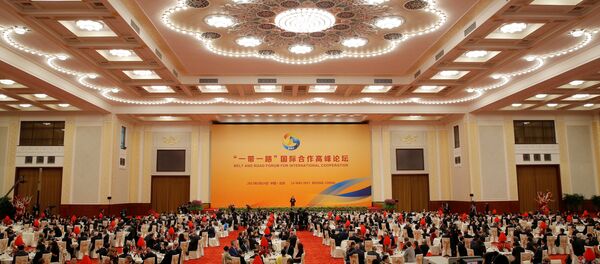India has clearly raised its objections on the basis of sovereignty, debt and environmental concerns.
"We are of the firm belief that connectivity initiatives must be based on universally recognized international norms, good governance, rule of law, openness, transparency and equality," India's Ministry of External Affairs spokesperson responded to a query on India’s participation in the OBOR/BRI Forum (http://www.mea.gov.in/media-briefings.htm?dtl/28463/Official_Spokespersons_response_to_a_query_on_participation_of_India_in_OBORBRI_Forum). "Connectivity initiatives must follow principles of financial responsibility to avoid projects that would create an unsustainable debt burden for communities; balanced ecological and environmental protection and preservation standards; transparent assessment of project costs; and skill and technology transfer to help long term running and maintenance of the assets created by local communities. Connectivity projects must be pursued in a manner that respects the sovereignty and territorial integrity."
Despite the chill that has set in India-China ties after Indian Prime Minister Narendra Modi and Chinese President Xi Jinping's bonhomie during the latter's visit in 2014, foreign direct investment from China to India has steadily increased in the last three years. China has emerged as one of the fastest-growing sources of foreign direct investment into India — it was the 17th largest in 2016, up from the 28th in 2014 and 35th in 2011.
Not only that, the bilateral trade in 2016 reached $70.08 billion, down from $71.63 billion in 2015, according to data available with China's General Administration of Customs. The trade deficit reached a record $46.56 billion, but it is also linked to slowing demand in China.
Experts said a burgeoning trade deficit is a reason for concern but India has become an attractive destination for the Chinese.
“China’s prime focus is on trade and investment, with all economies across the world, including India. In addition to pumping massive infrastructure investment through OBOR, Chinese businesses are now investing in lucrative sectors like electronics, mobile handsets, consumer durables where they have gained a significant advantage. For instance, mobile handsets is one major area where they are giving tough competition to established brands like Samsung, LG, Apple and others in India and elsewhere. Many Chinese brands have or planning to set up manufacturing units as well giving a boost to job creation and skill development. It is now up to India how well we are able to harness these investments by creating a conducive environment,” Dr. Deep K-Datta Ray, Associate Professor, OP Jindal World University, told Sputnik.




